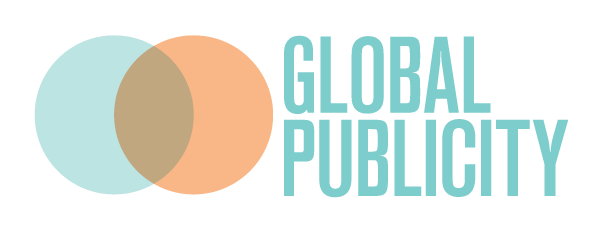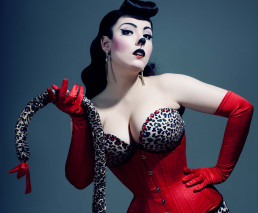Check out the Spin OFF program as this years OFF Festival
What did Mr. Blot’s Third Eye Hear?
Polish Radio Experimental Studio at the OFF Festival Katowice
August 6–9, Porcelana Śląska Park
For most Poles, the pioneering electronic sounds produced by the Polish Radio Experimental Studio were an essential part of their childhoods. Music and sound effects specially made for theater, film, radio and television made up the lion’s share of the studio’s output. The Polish word for music video, teledysk, was even coined by Eugeniusz Rudnik, the famous composer, engineer and custodian of the studio’s memory. Such experimental productions as Józef Robakowski’s Dynamic Rectangle, Zbigniew Rybczyński’s Soup (both featuring sounds by Rudnik), and the impressive third eye sequence (with music by Bohdan Mazurek) in Mr. Blot’s Academy were all essentially music videos.
Rudnik, Mazurek and a handful of Warsaw sound wizards taught us how to listen to the modern world. Among their devotees are Jacek Sienkiewicz, who composed an homage to Bohdan Mazurek, the Norwegian composer Maja Ratkje, who admits to her fascination with Eugeniusz Rudnik’s dadaist side, and the band Małe Instrumenty, who have managed to translate the old studio experiments into their own inimitable acoustic tongue.
These artists will perform at Porcelana Śląska Park on August 6, the opening event of an exhibition that showcases the richness and multi-dimensional character of the phenomenon that is the Experimental Studio. A special selection of films will introduce viewers to the studio as a place where neo-avant garde audiovisual experiments took place alongside mainstream cinema sound work. The lineup of course includes the excellent documentary film by Zuzanna Solakiewicz 15 Corners of the World, an attempt to see and hear the world through the eyes and ears of Eugeniusz Rudnik. As the film critic Tadeusz Sobolewski observed, “Perhaps outer space, still untouched by advertising, was more accessible from the poor concrete housing blocks of our past.”
Screening of 15 Corners of the World, dir. Zuzanna Solakiewicz (August 6)
Eugeniusz Rudnik revolutionized the concept of music with help of a pair of scissors and some audio tape. The creator of the Polish Radio Experimental Studio discovered the potential of the cut-up sounds on the editing room floor long before DJs appeared on the scene. 15 Corners of the World is an attempt to hear his music through a visual medium. The moving images illustrate the miracle that happened in the age of tape recorders and disappeared with the arrival of the computer. They are an expression of admiration for the wonderful analog era and the desire to experiment: to discover new and unknown vistas, to probe the limits of sound and to constantly search for new forms of expression.
Concerts (August 6):
Małe Instrumenty, Kartacz
The work of the Experimental Studio and the techniques employed by Paweł Romańczuk’s Małe Instrumenty share the goal of searching for music that remains “unachievable” for various reasons, though both have opposite temporal orientations. The studio used the latest technology and studied sounds that didn’t exist in traditional music. Małe Instrumenty, conversely, seek archaic qualities that give “real sounds” more room to breathe and operate. The suite Kartacz by Paweł Romańczuk is an acoustic reconstruction of the “future sounds” created half a century ago, with echoes of the darker periods in Polish history that resurfaced time and again in the work of the Experimental Studio.
Maja S. K. Ratkje, In Dialogue with Rudnik
Maja S. K. Ratkje is one of the leading and most versatile figures on Scandinavia’s new music scene. She composes operas, improvises, experiments with voice and electronics, records for John Zorn’s record label, sings revolutionary songs and writes articles about the underappreciated role of women in Norwegian music. Ratkje’s ultra-modern attitude has more in common with Eugeniusz Rudnik’s old-school experiments than you might think: “(…) I was thrilled to hear his non-idiomatic use of field recordings and voices. I have worked with such sounds since I first started to create my own electronic pieces.”
Jacek Sienkiewicz, Bohdan Mazurek Revisited
A premiere project commissioned by the OFF Festival Katowice. Polish techno pioneer Jacek Sienkiewicz has been making increasingly frequent forays into the experimental roots of his original aesthetic, which includes more than just dance music. The artist was initially fascinated by Bohdan Mazurek’s bold yet highly polished sounds, his imagination — unbridled by academic stereotypes — and his love for the Tatra Mountains.
Exhibition (August 6–9)
Where: Porcelana Śląska Park, ul. Porcelanowa 23, Katowice
When:
Shows: 6.08 start 18:30
Exhibition: 7-9.08, opening hours 10:00-21:00
Admission free.
Collaboration: Fundacja Giesche i Porcelana Śląska Park
Contact:
Nikki McNeill at Global Publicity
nikki@46.32.240.39

